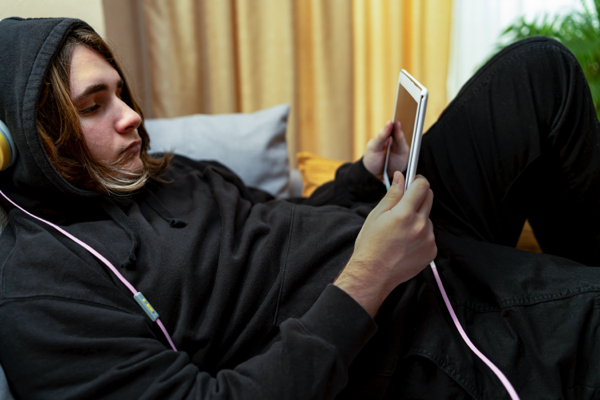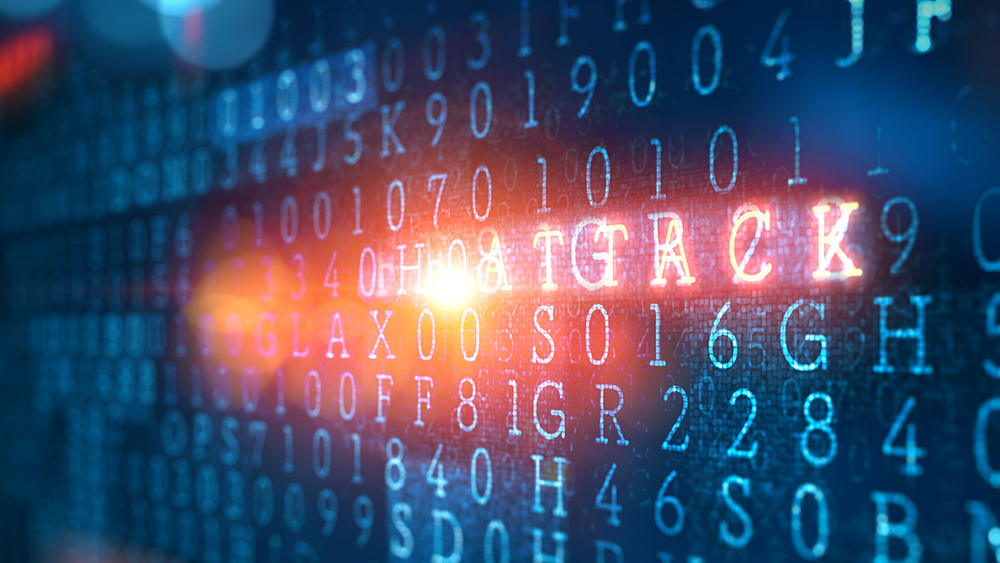Gen Z blames social media for mental health struggles, yet few are ready to disconnect
08/22/2024 / By Olivia Cook

A recent survey reveals that three out of four Gen Z individuals with internet access in the United States believe social media negatively impacts their mental health.
The survey, which gathered responses from 2,000 Gen Z social media users, found that Instagram and TikTok (both at 20 percent) and Facebook (13 percent) were the platforms most often linked to declines in mental well-being.
For older members of Generation Z, born between 1998 and 2004, growing up with nearly a decade of social media exposure may have contributed to what one expert referred to as “problematic internet use.” (Related: How smartphone addiction affects brain function and mental health.)
Commissioned by LG Electronics, this survey was carried out online by Talker Research between June 20 and June 24.
The study shows that people start to feel negative emotions just 38 minutes after using social media. This is often because they encounter upsetting content (51 percent), feel unproductive with their time (49 percent) or experience “fear of missing out,” or FOMO (36 percent). On average, individuals spend about five and a half hours each day on social media and 45 percent believe they use it more than their friends do.
Louis Giagrande, LG Electronics head of U.S. marketing, pointed out that spending a lot of time online can leave people feeling drained. He said people should be mindful of the content they engage with to improve their overall well-being and focus on positive content to help manage life’s challenges better and find more happiness.
Interestingly, 62 percent of Gen Zers wish they could reset their social media feeds. Many are frustrated with the content they see, with 53 percent saying it doesn’t match their interests and 54 percent feeling they have little control over what appears in their feeds. Only 16 percent believe they have full control.
Despite these issues, 80 percent of respondents also find that social media can positively impact their mood. Content that tends to lift people’s spirits includes comedy (65 percent), animals (48 percent), beauty-related posts (40 percent) and prank videos (34 percent). Conversely, content related to violence (50 percent), politics (40 percent) and sexual themes (32 percent) often leads to negative feelings.
The study found that two-thirds of people have managed to turn a bad day into a good one thanks to social media. They are also 70 percent more likely to use social media when they’re in a good mood and 44 percent believe it has a positive effect on their outlook on life. Looking ahead, 38 percent think social media platforms will improve their impact on mental health over the next five years.
Gen Zers use social media daily for various reasons, according to the study. Sixty-six percent do it out of boredom, 59 percent seek laughs or smiles, 55 percent need a distraction or break, 49 percent want to stay updated on global events, 44 percent check in on friends, 42 percent seek connections with others, 33 percent look for relaxation and 32 percent search for specific information.
How smartphone addiction affects mental health
Recent findings reveal a concerning link between excessive smartphone use and serious mental health issues. Teens who spend more than three hours daily on social media face an increased risk of developing mental health issues, especially those related to internal stress and anxiety.
Research from JAMA Psychiatry, which studied nearly 6,600 U.S. adolescents, suggests that boosting media literacy, limiting social media time and redesigning social media platforms could help alleviate these mental health issues.
A study published in the Canadian Medical Association Journal consolidates evidence from numerous research efforts – showing that heavy smartphone and social media use is associated with greater mental distress, self-harm and suicidal thoughts among young people. This effect is particularly pronounced in girls and follows a pattern where more screen time correlates with more severe problems.
Experts also point out that social media negatively influences teenagers’ self-esteem and their relationship with others. Problems, such as cyberbullying, social comparison and the glorification of self-harm and suicide are prevalent. Furthermore, heavy smartphone use and multitasking contribute to chronic sleep issues – impacting academic performance, cognitive abilities and emotional stability.
San Diego-based psychologist Dr. Jean Twenge and her colleagues have documented a significant rise in anxiety, depression and loneliness among American adolescents. Her latest research shows that high school seniors now spend about an hour less each day engaging in face-to-face social activities compared to their peers from the 19080s. This decrease in personal interaction – such as attending social events, dating and spending time with family – correlates with increased feelings of loneliness, especially since smartphones have become widespread.
Visit Mental.news for more stories about social media and smartphone use and mental health.
Watch this video from SciShow discussing how people can overcome FOMO and lessen their social media addiction.
This video is from the Daily Videos channel on Brighteon.com.
More related stories:
Study: Teens with “problematic smartphone use” more likely to experience anxiety and depression.
Are you feeling down? A digital detox can help improve your well-being, says experts.
The link between social media and depression: How to care for your mental health.
Mobile devices rewire your brain, turning you into a reward addict who craves more food.
Sources include:
Submit a correction >>
Tagged Under:
addiction, anxiety, computing, cyber war, dangerous, depression, future tech, Gen Z, glitch, health science, honest, information technology, internet, inventions, mental health, mind, mind body science, research, smartphone addiction, Social media, truth
This article may contain statements that reflect the opinion of the author
RECENT NEWS & ARTICLES
COPYRIGHT © 2019 Dangerous.News
All content posted on this site is protected under Free Speech. Dangerous.News is not responsible for content written by contributing authors. The information on this site is provided for educational and entertainment purposes only. It is not intended as a substitute for professional advice of any kind. Dangerous.News assumes no responsibility for the use or misuse of this material. All trademarks, registered trademarks and service marks mentioned on this site are the property of their respective owners.




















